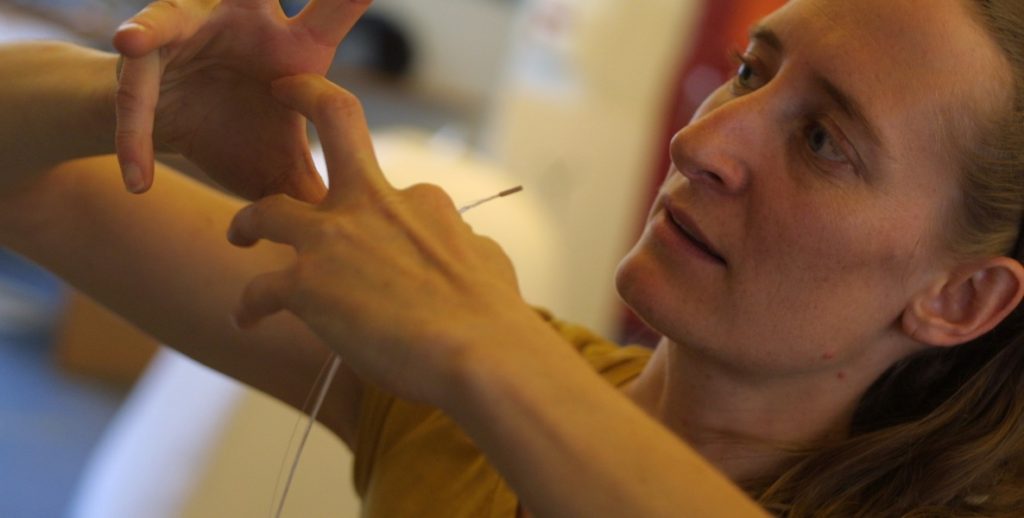When Leah Buechley was growing up in New Mexico, she was always gifted and interested in math and science. But she didn’t think of herself as a scientist; she was, instead, artistic. “I was into fashion and design and art,” Buechley says. “I went back and forth between those two thing—being an artistic kid, but doing well in math and science.”
That dichotomy stayed with Buechley until she started graduate school when, she says, “I discovered this really exciting territory at the intersection of technology and arts.” That intersection led Buechley to her research at MIT Media Lab, where she led the High-Low Tech Group, creating ways to integrate traditional arts and crafts with new technology. Among other things, she invented Lilypad Arduino, a sewable electronics kit for children that lets them stitch together lights, sensors and little computers with conductible threads to create, for example, a shirt that sings or turns colors. Lilypad Arduino was designed to appeal to all kids, even those, like Buechley, who might not think of themselves as scientists—like girls.
Like the wearable technology kit, Buechley’s work at MIT Media Lab touched on something that has become more apparent to Buechley since she left Cambridge in 2014: The inequality inherent in our education system, particularly when it comes to computer science and STEM [Science, Technology, Engineering and Math] fields. “Technology and STEM are dominated by white and Asian guys,” she says. “Some of the work I’ve done has shown ways of attracting different types of people. A social justice lens has always been a part of of what I do.”
Three years ago, Buechley moved back to New Mexico to focus on the business she formed out of her research and to have a family. (She has a three-year old son.) The time away from academia has allowed her to think more deeply about the ways in which technology—an exciting educational tool—can also leave more people behind in a system in which those with money have more access to the latest gadgets, and those without it barely get any computer education at all.
“It’s important for us who work in educational technologies to spend a lot more time and attention thinking about these big hard problems,” she says. “If we don’t address them, it will get worse. And our inventions can make that gap even worse.”
Buechley will talk about these issues and her personal angst over choosing a prospective school for her child as part of Drexel ExCITe Center’s Learning Innovation Conversation Series. She says she’s hoping both to impart lessons from her years as an education tech developer, and to solicit answers from the audience about the difficult questions we all should be facing about the state of education in our country.
“Do ‘learning innovations’—new technologies and approaches—usually exacerbate inequality?” she wonders. “How can we guard against this? How can we ensure that schools connect to the interests, passions, communities and cultures of all kids? What can we do to better engage and support everyone?”

